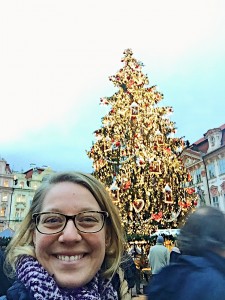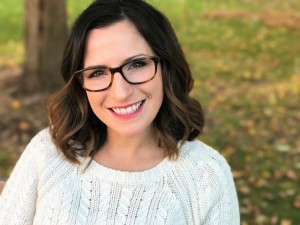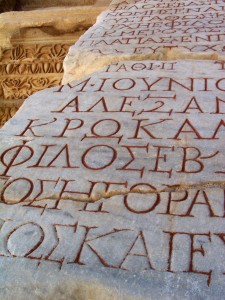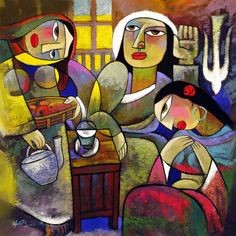 Rev. Cathy Kaminski is the lead pastor of Trinity Community Church in Cincinnati, OH. She hopes this article will be a gift to you this Christmas.
Rev. Cathy Kaminski is the lead pastor of Trinity Community Church in Cincinnati, OH. She hopes this article will be a gift to you this Christmas.
Here is a gift you can give to your sisters this Christmas: understanding. We all have demons of self doubt. At times they can paralyze us, make us give up, change course or lose focus. Realities that plague our psyche. Male or female, we can all fall victim to the crushing weight of our mistakes, shortcomings or doubt. But here is what we all need to understand: these forces that threaten to deter us can be destroyed by the love, encouragement and support of the people around us. The crushing place is the one in isolation, but the love of our community can pull each of us out of the spiral of doubt.
But we have to start from a place of understanding. What are the lies we tell ourselves and how can we be equipped to fight them? And while we each have to do the hard work of combating our own demons, this is not what I am here to expose. I want to discuss how we can help destroy the lies for ONE ANOTHER. Let us grow in our understanding of the forces we fight each day and let us COLLECTIVELY break them down.
For your sisters these forces are many, but together we can tear them down. And this work is the gift we can give in abundance this Christmas season! What common understanding do we need to help our sisters, daughters, partners & friends? Here is a profound truth: although there are many who support the voice of women, (and I’m hoping if you are reading this, you are one of them), not all people do. Therefore many women’s default stance is trepidation.
In my own experience, I am often cautious and hesitant when entering ministry settings because I don’t know if my very presence will be an issue for people. I’ve learned to take up less space, not be a burden, and take the opportunities given to me, but not be too pushy. As I’ve gotten older and trusted God’s call on my life more and more I realize how much nonsense is in this approach. Why should I be smaller when God has gifted me to have a voice and bless the church? Why should I be less? Am I really a threat? And if so, what exactly does my presence and gifts threaten? I don’t have to be everyone’s pastor, but I also don’t need to deny my pastoral calling and hold back my gifts if there are those around me who do not support me.
This is the lesson I’ve learned and keep learning. It’s a struggle that is real and has ups and downs. Here is the way each and everyone of us can contribute to transforming this muted expression of call: if you have a female friend, colleague or family member in ministry be a vocal, active support. Let her know you are a safe person who supports her full expression of call. Make it so that in your presence she doesn’t have to hold back or be less. Create space for the full and beautiful manifestation of the gifts of the women around you. If you already do this: thank you! Now do it more!
It is such a sad truth that for so many women the default is “less.” And it’s a missed opportunity for the Church. If we understand this reality then we can start to break it down. And it starts with you and me. It starts with conversations. It continues with a posture of openness and support. It changes when we challenge others to break down this reality too. Be generous this Christmas: give this gift of understanding and support. And let the church be better because of this gift!



